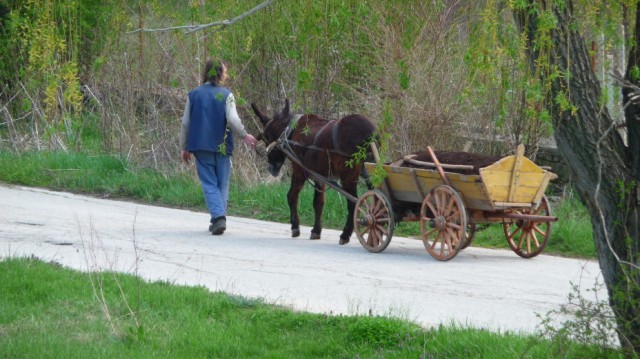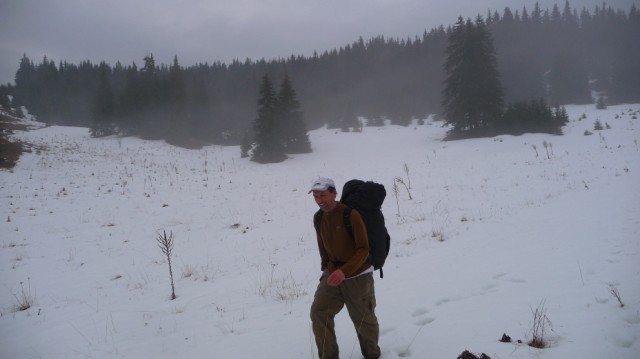A quick tour through Bulgarian history
The beauty and history embedded in Veliko Tarnovo motivated me to learn more about Bulgaria's history. Over 5,000 years ago, Thracians were the first major civilization to show up in Bulgaria. The Romans took over in the first century, establishing places like Plovdiv. In the seventh century, the Bulgars, who were descendants of people from Central Asia (near Iran), migrated to Bulgaria. They mixed with the locals and, in 681 AD, carved the first Bulgarian state out of a part of the Byzantine Empire. After a few hundred years, the Byzantines reconquered the land, but they felt the need to poke out the eyes of 15,000 Bulgarians first.
Eventually the Bulgarians started their second kingdom in 1185, placing the capital in Veliko Tarnovo (see photo above). That lasted nearly 400 years, when the Turkish Empire crashed the party. For the next 500 years, Turks ruled Bulgaria. At that point, according to one melodramatic Bulgarian historian, "The brilliant medieval Christian culture of the Bulgarians fell into decay."1 The Turkish legacy explains why one in ten Bulgarians today is an ethnic Turk. In 1878, the Russians and the Bulgarians booted the Turks out. After winning their first war in the twentieth century, Bulgaria lost the next three: the Second Balkan War, WWI, and WWII.
The WWII story is tragicomic. Bulgaria wanted to remain neutral during WWII, but both sides tried to seduce Bulgaria by offering it new territory. Hitler offered a better deal, so the Bulgarians reluctantly signed up. When the Germans were retreating in August 1944, the Bulgarians did something cute—they declared that they were now neutral. The Soviets grinned. The Bulgarians tried to keep a straight face and repeated, "Really. We're neutral now. Honest."
Three days later, thousands of Soviet tanks and troops poured into Bulgaria, unopposed. In one day, Bulgaria was conquered without a fight. After the war, Russia blessed Bulgaria with communism. Todor Zhivkov ruled Bulgaria from 1956 to 1989. Toward the end, he made some reforms like granting limited free speech, closing labor camps, stopping executions, and ending church persecution. It wasn't enough. After 1989, he was placed under house arrest until he died in 1998. After the fall of communism, Bulgaria looked to the west. Bulgaria joined NATO in 2004 and the EU in 2007.
Francis Tapon backpacking from Triglav to Shiroka Laka across the Rhodope mountains.
LEFT: Grandmother of Bozin Kostadinov, my couchsurfing host. RIGHT: Bulgarian sunset in Nesebar on a Black Sea.
This is an excerpt of The Hidden Europe: What Eastern Europeans Can Teach Us. You might want to read about when I first visited Bulgaria in 2004.
Recommended reading
Read up about Bulgaria in Wikipedia and Bulgaria in the CIA Factbook.
Travel deals to Bulgaria
Check my favorite travel sites:









